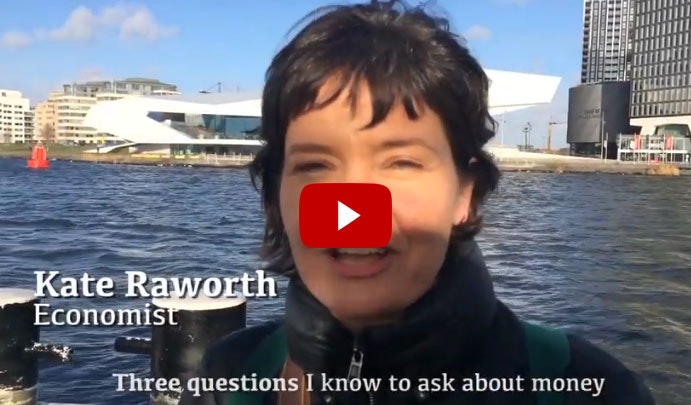Introducing “The Money Question” website

Today we’re launching themoneyquestion.org! It’s a website dedicated to constructive research and debate all about monetary theory and monetary reform, including content on MMT and a Sovereign Money System. Here’s a 2-minute video with Kate Raworth which explains more about it:

How will a Sovereign Money System work? What questions do we need to answer before it’s possible? How can we better work together to take tangible steps towards it?
Transforming our monetary system is a huge and complicated project, and money has been the subject of academic debate for hundreds of years. Movements for monetary system reform have appeared and faded on a number of occasions over the past decades, notably after periods of economic distress. Prominent examples include the Chicago Plan in the 1930s and the monetarist experiments of the 1980s.
It is no surprise then that the global financial crisis in 2008 led to a resurgence of interest in the area both in academia and among the public at large.
Organisations like Positive Money in the UK, the International Movement for Monetary Reform (IMMR) which unites several organisations around the globe, and the growing support for Modern Monetary Theory (MMT) in the USA in particular, show that there is a groundswell of interest – giving hope that change may finally come. Our movement has certainly grown a lot over the last 8 years.
However, this community of activists and reformers remains divided on some areas. Much of the discussion occurs in 280 characters on Twitter and often tense academic exchanges occur between those who agree on the problems of the current system and who almost agree about the solutions to those problems.
Recently we’ve recognised both that Positive Money alone cannot do justice to being the host for the growing academic debate on monetary reform and that there must be a more constructive way of moving us towards positive reform of our monetary system – something which all of us want to see.
We believe in the academic process of research, and that the best ideas come out of lots of heads working together and testing each other’s thinking. So in order to move our movement forward, we need a central place for economists, researchers and students to come together for a constructive and open debate.
So that’s why we’ve established and funded The Money Question website. Our hope is that The Money Question will provide the antidote to the divisive debates. It aims to allow research to move more quickly than the slow-moving and often restrictive journal system, and in a more constructive way than Twitter permits.
The Money Question:
> is a neutral space to allow researchers to debate and advance their research in long form and find where the research is robust or nascent;
> aims to be truly collaborative, allowing the community to shape the definitions we work from and the papers we read;
> is a place for everyone with an interest in the money question from all nations, disciplines, schools of thought and levels of knowledge;
> is a place where newcomers can learn how the system works today and how it got there, and explore different solutions to the problems it creates.
We invite you to read, explore and comment, to submit blogs and papers if you’re a researcher or student, and above all to respect the culture of constructive debate – it’s a space for people who are open-minded and want to engage in positive and purposeful discussion.
Why not check out these pages to get you started, then have a browse around the rest of the site!
Full reserve banking: Where are we now? The current state of research and next steps. A blog by Dr Patrizio Lainà
Glossary: definitions on monetary reform drawn up by researchers and improved by our community.
Introductory Essays on six key areas of monetary reform: origins and history of money and banking, the current system, economic perspectives on money, MMT and sovereign money.
The more of us who use and visit The Money Question, the more useful it will be. So if you like what you see, we invite you to share this video with your friends and contacts on Facebook and Twitter.